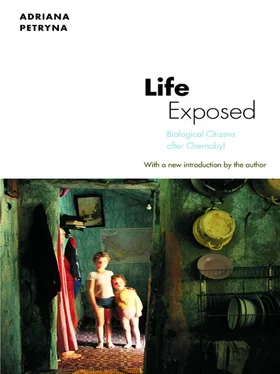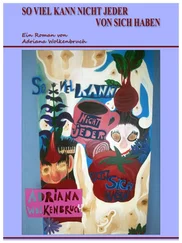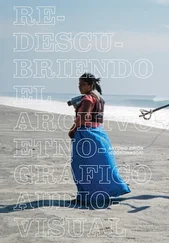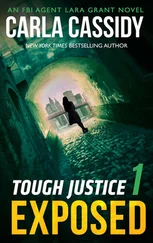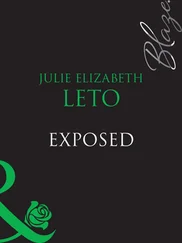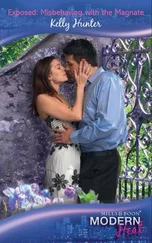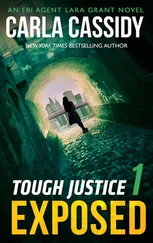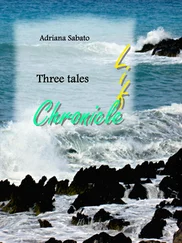While Halia was in the kitchen preparing dinner, Anton spoke about how he had a difficult time sleeping. He said he was “tortured” at night. He said, “My legs don’t walk,” referring to them as autonomous and separate from him, and claimed that his “arms were paralyzed.” My sense was that Anton was learning to perform the role that had come to be expected of him as a sick person. Like his autonomous limbs, his sick self seemed almost a separate being with whom Anton struggled and attempted to come to terms. Arguably, he never did. His way of being with the illness was both confused and normal. People were complicitous with this normal confusion; it relentlessly foreclosed other modes of social engagement.
The conversation turned to the topic of medication. “I will not turn away from tablets anymore,” Anton said. “Only pills, no shots. I hate shots.” He went to the medicine cabinet. “We can’t afford this anymore but this helps the most,” he said, as he pointed to some ampules used to help cerebral vascular dilation (Nootropil). “They don’t give it to us at the drugstore anymore, we have to pay for it now, even if we show them our documents.” Anton then invited me to a smaller table near the television while the others talked. He pulled out family albums and started to pore over the photographs inside. He pointed to photos from the times when he and Halia had traveled, wearing sleek clothing, and exchanging loving and wistful gazes. Anton then skipped to a photo taken in 1986 after his return from the Chernobyl Zone. Dressed in a suit, he is seated at the dinner table, with his right hand holding a fork spearing a piece of meat. A sign in the background reads, “This year was a black year for us, and in 1987, we will see.” Halia overheard our conversation. Opening what had once been used as a liquor cabinet, she said, “Anton’s drugs have replaced Stalin’s finest liquor.”
Where there had once been a family, now there was a new kind of collectivity forming around the dinner table. The dinner was elaborate. The feast was beyond budget. Nezdorov had taken up much of the attention at the table by recollecting the trauma he had experienced in seeing nuclear explosions at a secret Siberian nuclear installation where he had served as a soldier. He had brought to this dinner a book on magnetic energy healing and tried to convince me, based on the color of my tongue, that I had a kidney problem. The neurologist had made it his business to ensnare people within fanciful medical diagnoses. Later, Nezdorov told everyone that Anton’s personality change was due to an organic brain disorder.
Halia placed a roasted pig shank, spiced with dill and parsley and trussed with strings, in the middle of the table. She said she had prepared it following a traditional recipe from her village. I found it startling that no one ate the meat. People were drinking, sampling appetizers here and there. Words, knowledge, potential favors, symptoms, and drugs were being consumed instead. At one point, Anton played with Little Halia. He pulled a white tablet out of the liquor cabinet. He tantalizingly asked the girl if she wanted it. Everyone thought it was a pill. The girl took it and put it in her mouth. She had learned how to play along with her grandfather. (The “tablet” was a Tic Tac.)
In fact the little girl became quite adept at “pretend treatment” herself. On a different occasion, I watched how she jumped into the living room and announced to her grandfather that it was “time for his treatment.” This was a signal for Halia to search for a glass pipette or a small needle in the medicine cabinet and for Anton to lie down on the couch. He feigned agony as he decided which body part to expose to his grand-daughter’s ministrations. His arm, his knee, this time it was the bottom of his foot. After she rubbed the foot with a cotton ball and right before her reckless poke, she made sure that Halia was watching approvingly: “Mama, I’m giving D’ed a shot!” I was told that the girl commanded paramedics around when they came to the apartment to pick up Anton; she addressed them in the derogatory form vrachikha (vrach means doctor in Russian; vrachikha means witch). The little girl had begun to internalize and make a game of her medicalized surroundings.
In the kitchen and while talking with Halia, I discovered that she too had health problems. Every day at a certain time she walked to the local hospital to get treatment and massages for her chronic back pain—the pain was also a pretext to leave the kvartyra, to find some peace away from her restless husband and to meet new friends. “The stranger is our best friend,” she told me. Chance relationships were now an important part of her life and survival strategy. She told me of a woman she had met who invited the couple to do small-scale farming on a private plot of land, four hours outside of the city. Anton and Halia annually traveled there with Little Halia to pick vegetables and fruits for the winter.
After dinner and as the neurologist Nezdorov stepped through the door, thanking Halia for the meal, Anton waved his right hand. He made his left arm look stiff and paralyzed.
Who was Anton becoming? In mid-August, he called me, extremely upset. He said that Halia’s father had been “lying on the floor for three days, paralyzed,” before a neighbor in his village had discovered him. Halia and her daughter Sasha immediately took the next train to Horlytsia. Anton worried that he would not be able to pay the “impossible expense” of the funeral (though the father had not died). He said he was going to take sleeping pills that night, and that he “could not stand the thought of attending the father-in-law’s funeral.” His identification with that death was strong—some of his anxiety had to do with trying to reclaim his own role as a father in that world.
Two weeks later, Halia called and invited me to join Anton and her for an afternoon boat cruise. The Oil Institute Anton had worked for was celebrating its annual holiday on the Oil, Gas, and Oil Refinery Workers’ Day. Anton had recently received a slight increase of pension worth $25.00 a month as a gesture of charity from the Oil Institute’s director (who in turn received tax exemptions).
I met the couple at the boarding dock near the Dnieper River. Halia told me that Iryna and her husband had set off that morning with a borrowed car to the grandfather’s village to deliver a winter’s supply of food. Halia and Anton had just returned from Volyn’, where they harvested vegetables with friends Halia had met in the hospital. She told me that she was now also concerned about Little Halia, who had developed an irregular heartbeat. On several occasions the girl had complained about chest pain. Halia believed that the couple’s difficult life was taking a toll on the girl’s health. “She feels everything.”
Separately, that day, both Halia and Anton recounted a story to me about an incident involving Little Halia and a dead bird that had taken place during their trip. Their interpretations conveyed preoccupations with deeply personal concerns of death, both real and imaginary. As Anton perambulated around the boat’s deck, Halia recounted how Little Halia saw a dead sparrow that had fallen from a tree. “She asked me why the bird had died, I responded, ‘Some birds die and other birds live, see how the others in the tree live?’” The girl asked her grandmother to bury the bird. They searched for a small container and found one of Anton’s empty cigarette boxes. They placed the dead bird in it and buried it. “I told her,” said Halia, “that at night the bird will fly away and it will not come back.” Halia thought her granddaughter would forget about the bird thereafter. But instead, for the next three days, the girl woke up at five in the morning to exhume the box and check on whether the bird had flown away. Later, Anton told me fragments of the same story, but he emphasized Little Halia’s sorrow over finding the dead bird: “She was crying all the time.” To my surprise, he attributed the girl’s crying not to the dead animal that she repeatedly found but to the fact that “she doesn’t have a father. Her father left her—she was only eight months old. She doesn’t have a father.” He held his throat and added, “but she cannot say it.” As on other occasions, Anton invoked the painful conjuncture in his life involving his daughter Iryna’s divorce and his new role as a weak foster parent.
Читать дальше
